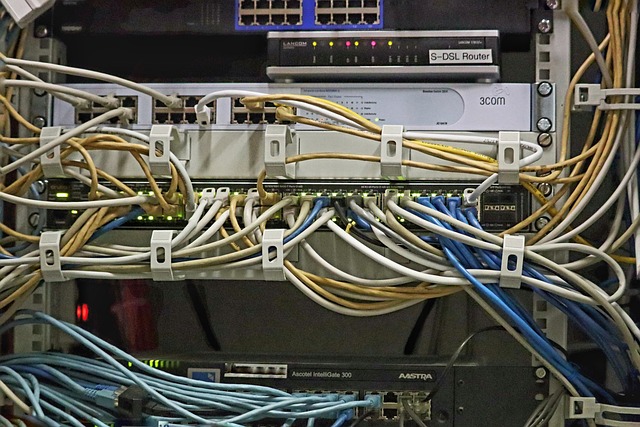# The Evolution of AI Technology: Understanding Its Impact on Society and Future Innovations
Artificial Intelligence (AI) has transformed from a niche scientific curiosity into a pervasive element of modern life. Over the past few decades, advancements in AI technology have reshaped industries, influenced societal norms, and ignited debates about ethics and future implications. This article explores the evolution of AI technology, its impact on society, and the innovations that lie ahead.
## The Historical Trajectory of AI Development
To understand the current state of AI, one must first examine its historical roots. The concept of artificial intelligence dates back to ancient history, with myths and stories about automatons and artificial beings. However, the formal study of AI began in the mid-20th century. In 1956, the Dartmouth Conference marked a pivotal moment, where researchers like John McCarthy and Marvin Minsky laid the groundwork for AI as a distinct field of study. Early AI systems focused on problem-solving and symbolic reasoning, leading to the development of programs that could play games like chess.
As the years progressed, AI experienced cycles of optimism and disillusionment, often referred to as “AI winters.” These periods of reduced funding and interest were primarily due to the limitations of early algorithms and hardware. However, significant breakthroughs in the 1980s and 1990s, particularly in machine learning and neural networks, reignited interest. The introduction of backpropagation algorithms allowed for more sophisticated models that could learn from data. By the 21st century, the convergence of increased computational power, vast amounts of data, and advanced algorithms set the stage for the AI revolution we witness today.
In recent years, the advent of deep learning has further accelerated AI’s capabilities. Notably, the success of deep neural networks in image and speech recognition has led to widespread adoption across various sectors. Companies began integrating AI into their operations, enhancing efficiency and productivity. Consequently, AI technology has evolved from theoretical frameworks to practical applications that permeate everyday life.
## Societal Impacts of AI Technology
The integration of AI into society has produced profound effects, reshaping the way we live and work. One significant impact is the transformation of the job market. Automation and AI-driven technologies have streamlined processes across industries, leading to increased productivity. However, this shift has also raised concerns about job displacement. While some roles become obsolete, new jobs emerge that require different skill sets, emphasizing the need for workforce retraining and education.
Moreover, AI’s influence extends beyond the workplace. In healthcare, for instance, AI algorithms assist in diagnosing diseases, analyzing medical images, and predicting patient outcomes. Such advancements have the potential to improve patient care and reduce costs. However, ethical concerns arise regarding data privacy and the potential for bias in AI algorithms, which can lead to unequal treatment of patients. As AI systems become more integrated into critical decision-making processes, ensuring fairness and transparency is paramount.
Another area where AI has made significant strides is in the realm of personal technology. Virtual assistants like Siri and Alexa have become commonplace, providing users with convenient access to information and services. Social media platforms leverage AI algorithms to curate content and enhance user engagement. While these advancements offer benefits, they also raise questions about privacy and the manipulation of public opinion. The ability of AI to influence behaviors and opinions underscores the need for responsible development and regulation of these technologies.
## Future Innovations and Challenges Ahead
Looking forward, the future of AI technology holds immense potential for innovation. Researchers are exploring various avenues, including explainable AI, which aims to make AI systems more transparent and understandable. This is crucial for building trust among users and ensuring that AI applications are used ethically. Furthermore, advancements in natural language processing are enabling more sophisticated conversational agents, which could revolutionize customer service and human-computer interaction.
Additionally, the integration of AI with other emerging technologies, such as the Internet of Things (IoT) and blockchain, presents exciting possibilities. Smart cities equipped with AI-driven systems can optimize traffic flow, reduce energy consumption, and enhance public safety. In agriculture, AI can analyze data from sensors to improve crop yields and sustainability. The fusion of AI with these technologies promises to address some of the world’s most pressing challenges, from climate change to food security.
However, as we venture into this future, several challenges must be addressed. Ethical considerations surrounding AI’s impact on society remain a significant concern. The potential for algorithmic bias, privacy violations, and the misuse of AI for malicious purposes necessitates the establishment of robust regulatory frameworks. Policymakers, technologists, and ethicists must collaborate to create guidelines that promote responsible AI development while fostering innovation.
Moreover, the question of accountability in AI decision-making processes looms large. As AI systems take on more autonomous roles, determining responsibility for their actions becomes increasingly complex. Establishing clear accountability measures will be essential to ensure that AI technologies are used for the greater good.
## Conclusion
The evolution of AI technology has ushered in a new era of possibilities, fundamentally altering various aspects of society. From its historical roots to its current applications, AI has demonstrated its capacity to enhance efficiency and transform industries. However, with these advancements come significant challenges that must be navigated thoughtfully. As we look to the future, a collaborative approach involving stakeholders from diverse fields will be crucial in shaping an AI-driven world that prioritizes ethical considerations and societal well-being. The journey of AI is just beginning, and its future innovations hold the potential to redefine the human experience.











